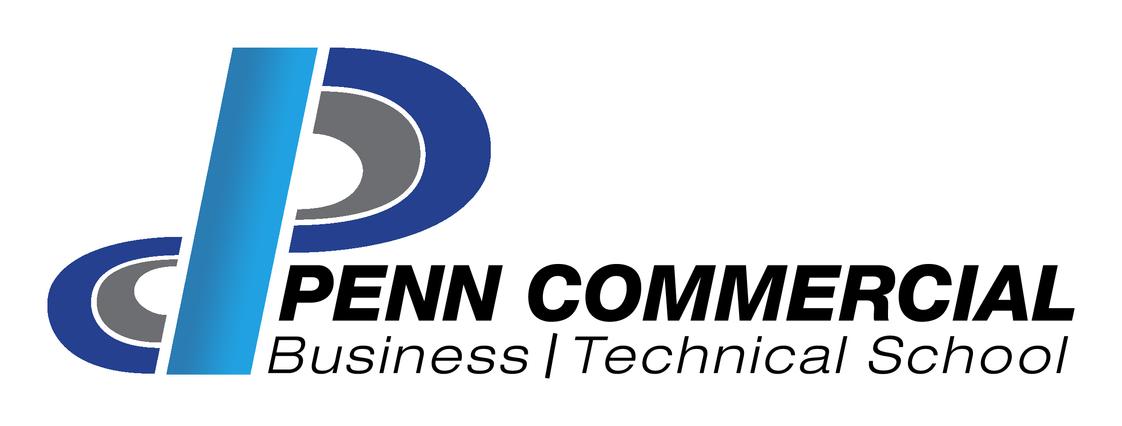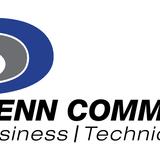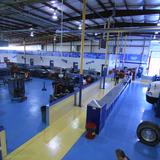- Penn Commercial began as a business school in Washington, Pennsylvania in June 1929. Over its more than 75 years of existence, Penn Commercial has provided quality educational programs to the job-seeking community members. Since founded in 1929 and incorporated into the Commonwealth of Pennsylvania in 1979, Penn Commercial has expanded and broadened its programs and facilities to meet the ever-changing requirements and needs of students and businesses alike.
School Highlights
Penn Commercial BusinessTechnical School serves 461 students (100% of students are full-time).
The college's student-teacher ratio of 18:1 is higher than the state community college average of 15:1.
Minority enrollment is 33% of the student body (majority Black), which is less than the state average of 48%.
Quick Facts (2026)
- Enrollment: 461 students
- Private-state tuition: $21,000
- Acceptance Rate: 78%
- Student-teacher ratio: 18:1
- Minority enrollment: 33%
- Source: Verified school update
Top Rankings
Penn Commercial BusinessTechnical School ranks among the top 20% of public schools in Pennsylvania for:
Category
Attribute
Completion Rates
School Overview
The teacher population of 25 teachers has stayed relatively flat over five years.
Penn Commercial BusinessTechnical School
(PA) Community College Avg.
Carnegie Classification
Associate's Colleges: High Career & Technical-High Nontraditional
Not applicable, not in Carnegie universe (not accredited or nondegree-granting)
Institution Level
At least 2 but less than 4 years
At least 2 but less than 4 years
Institution Control
Private for-profit
Private not-for-profit
Total Faculty
25 staff
59 staff
Student Body
The student population of Penn Commercial BusinessTechnical School has grown by 93% over five years.
The student-teacher ratio of 18:1 has increased from 13:1 over five years.
The Penn Commercial BusinessTechnical School diversity score of 0.51 is less than the state average of 0.68. The school's diversity has grown by 60% over five years.
Total Enrollment
461 students
461 students
Student-Teacher Ratio
18:1
15:1
# Full-Time Students
461 students
325 students
# Part-Time Students
n/a
136 students
# Enrollment Undergraduate
461 students
298 students
# Full-Time Undergraduate Students
461 students
326 students
# Full-Time Graduate Students
n/a
10 students
# Part-Time Undergraduate Students
n/a
151 students
# Part-Time Graduate Students
n/a
12 students
Total Dormitory Capacity
n/a
330 students
% American Indian/Alaskan
1%
n/a
% Asian
3%
5%
% Hispanic
2%
11%
% Black
8%
15%
% White
67%
52%
% Hawaiian
15%
3%
% Two or more races
3%
3%
% Non Resident races
n/a
1%
% Unknown races
1%
10%
Diversity Score
0.51
0.68
College Completion Rate (Students who graduate in less than 4 years)
88%
60%
College Completion Rate (Students who graduate in 4 years or more than 4 years)
n/a
36%
Average Graduate Earnings (10 Years)
$29,900
$34,900
Tuition and Acceptance Rate
The private state tuition of $21,000 is more than the state average of $17,231. The private state tuition has grown by 73% over four years.
Private State Tuition Fees
$21,000
$17,231
% Students Receiving Some Financial Aid
70%
88%
Median Debt for Graduates
$12,000
$13,000
Median Debt for Dropouts
$4,750
$6,260
Acceptance Rate
78%
78%
SAT Reading
n/a
460
SAT Math
n/a
470
SAT Writing
n/a
435
ACT Composite
n/a
20
ACT English
n/a
20
ACT Math
n/a
21
ACT Writing
n/a
7
Source: 2024 (or latest year available) Integrated Postsecondary Education Data System (IPEDS) , School Administrators
School Notes
- Penn Commercial purchased a building located in the Oak Spring Plaza in Washington, Pennsylvania in May 2001. The school immediately began renovations on the 65,000 square feet the school would occupy. The new facility provided many benefits for the students including state-of-the-art equipment and facilities, a licensed in-house day care center, classrooms located on one floor, and free ample parking for all students, staff, and visitors. The new Penn Commercial opened its doors to students in September 2001 and was officially introduced into the community with a ribbon-cutting ceremony on October 24, 2001. Penn Commercial offers Associate Degree in Information Technology and Security, Medical Assistant, Heating, Ventilation, Air Conditioning & Refrigeration and Computer Aided Drafting and Design. Penn Commercial offers many programs during evening school as well. In spite of continuing changes in the medical and technical fields, Penn Commercial's commitment to provide quality education to its students remains the same. Penn Commercial's curriculum helps students develop their individual potential, discover their strengths, and prepare themselves for lives that are both personally and professionally satisfying. With this mission in mind, Penn Commercial moves confidently into the future. The college is accredited by the Accrediting Commission of Career Schools and Colleges (ACCSC) to award diplomas and occupational associate degrees.
Frequently Asked Questions
How much does Penn Commercial BusinessTechnical School cost?
Penn Commercial BusinessTechnical School's private state tuition is approximately $21,000.
What is the acceptance rate of Penn Commercial BusinessTechnical School?
The acceptance rate of Penn Commercial BusinessTechnical School is 78%, which is equal to the state average of 78%.
What is Penn Commercial BusinessTechnical School's ranking?
Penn Commercial BusinessTechnical School ranks among the top 20% of community college in Pennsylvania for: Highest completion rates.
Recent Articles

Community College Policies and Financial Aid Guide 2026
A 2026 guide to community college policies and financial aid, including FAFSA updates, state aid, tuition rules, and smart planning tips.

Get Better Grades in Community College by Being Social (2026 Update)
Learn how being social in community college boosts grades, retention, and career success. Updated 2026 strategies for academic achievement.

Navigating Community College as an Adult Learner in 2026
A practical 2026 guide for adults returning to community college, covering admissions, financial aid, career planning, and flexible learning options.











